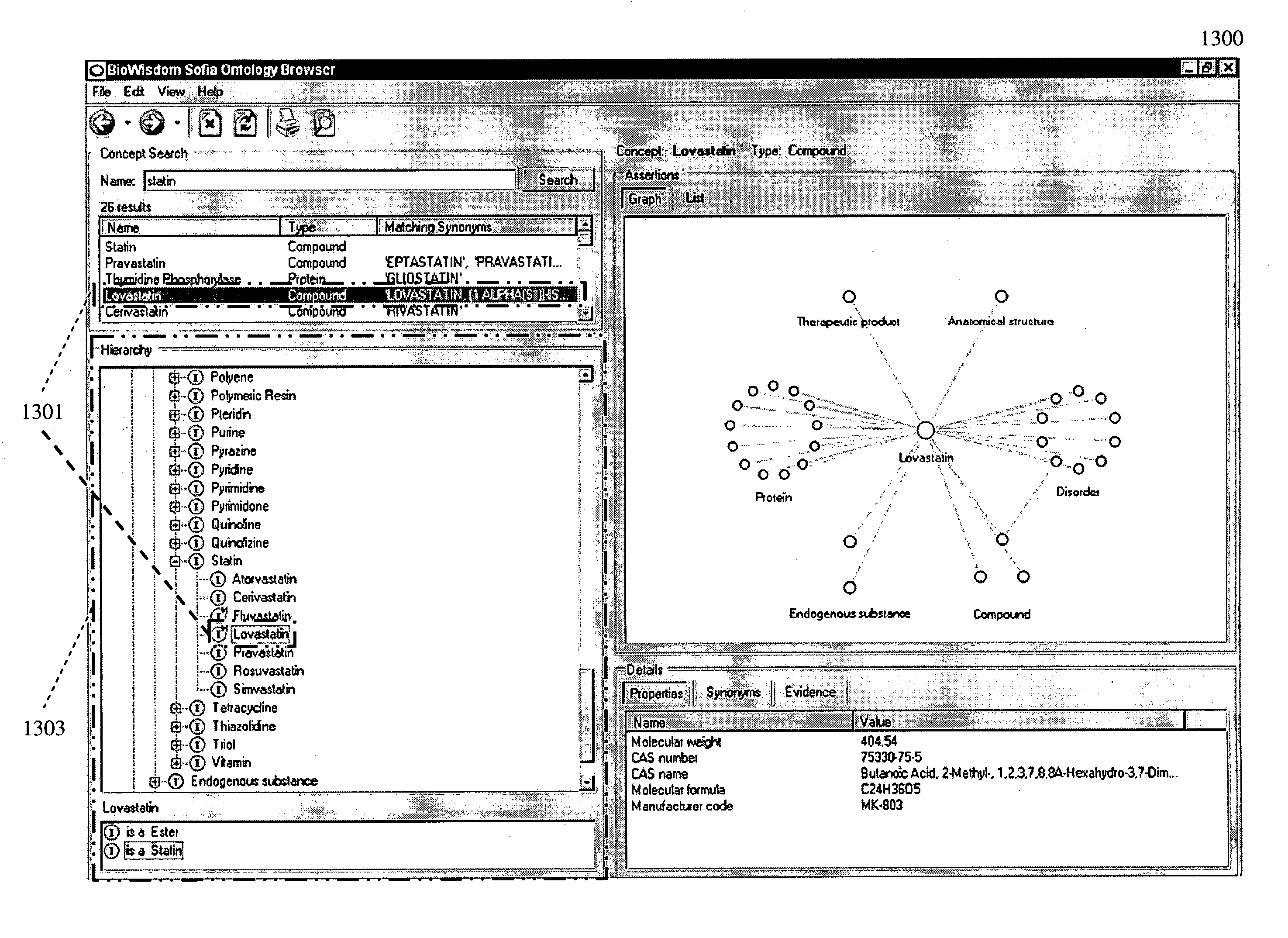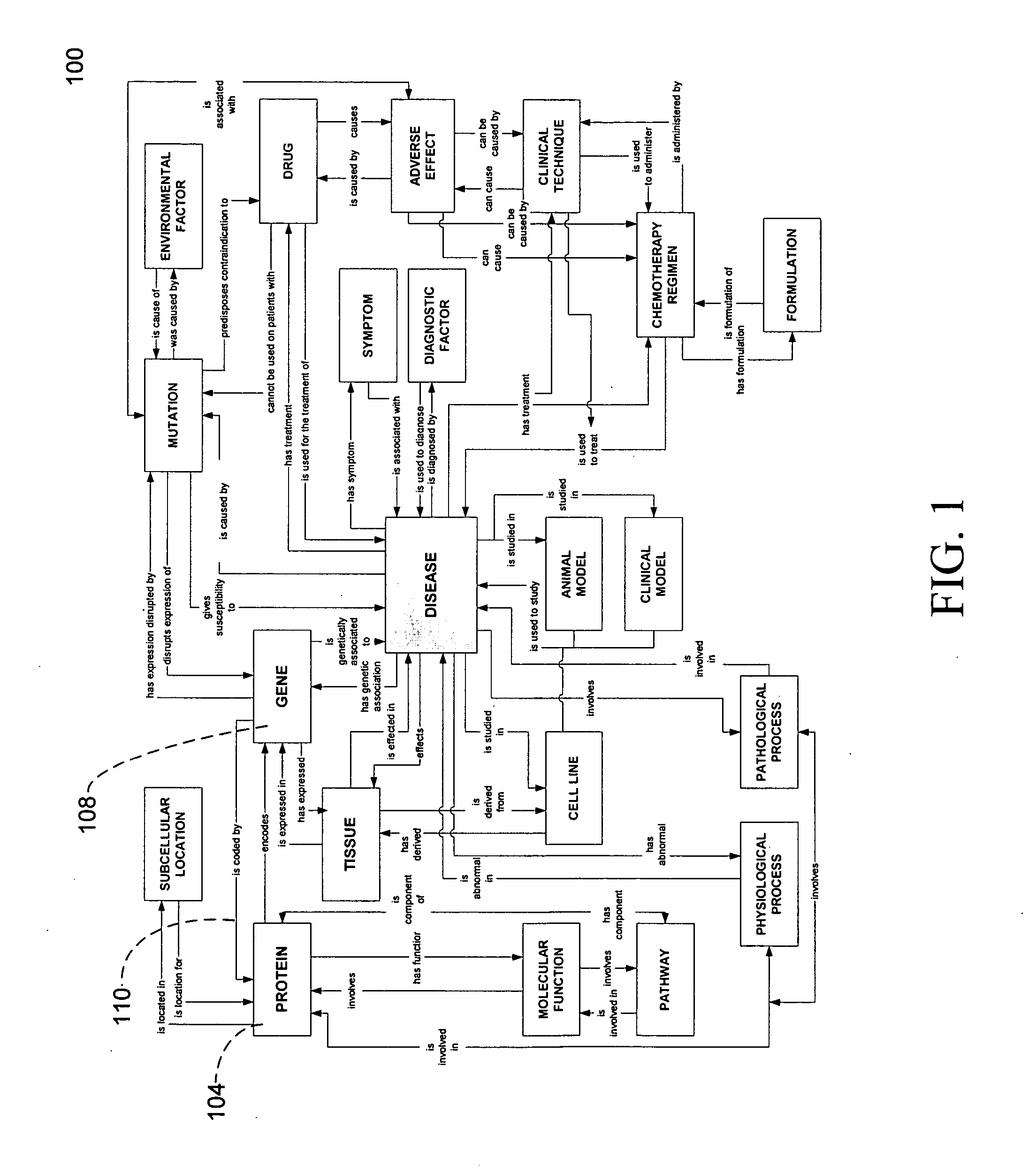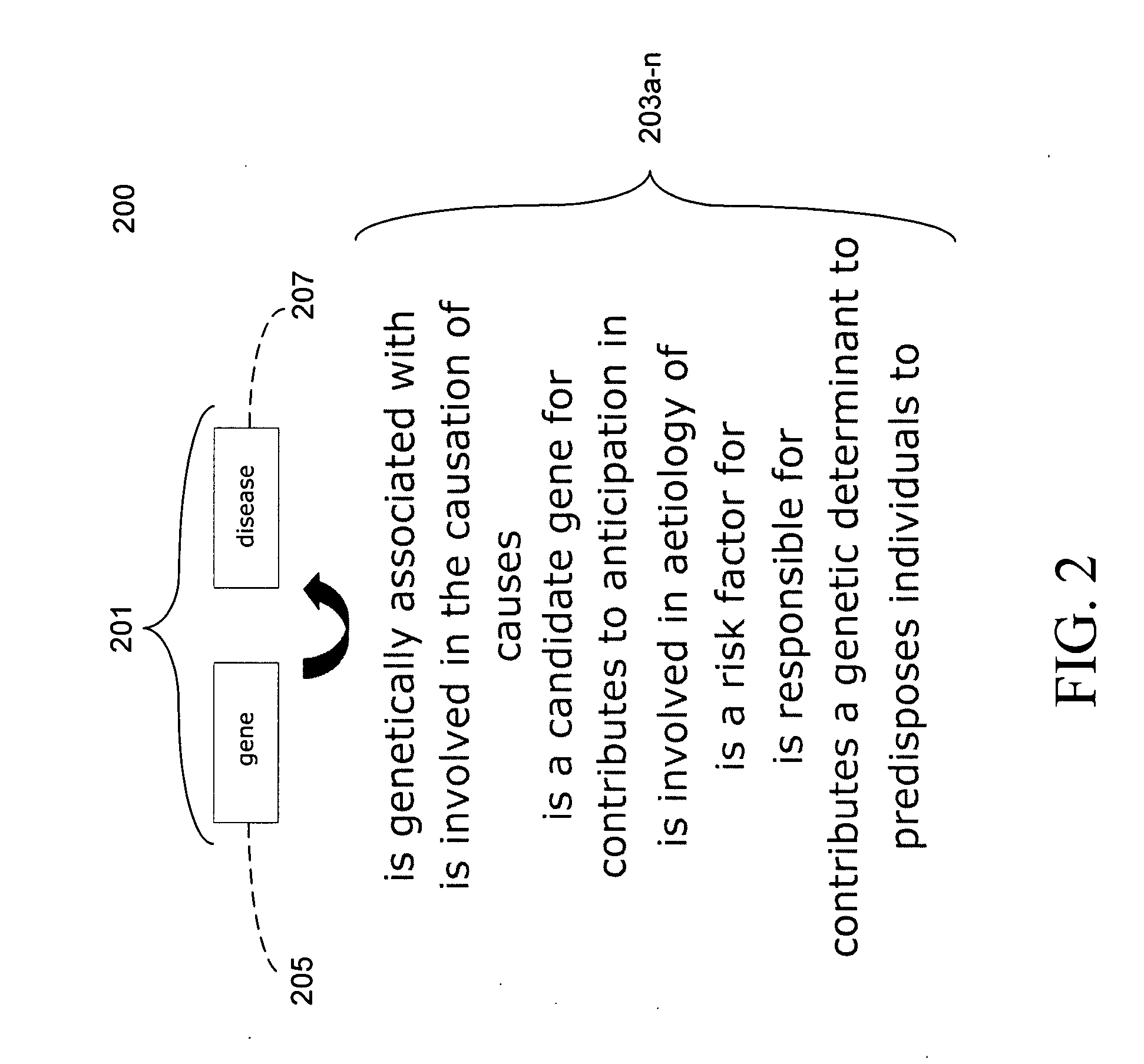System and method for facilitating user interaction with multi-relational ontologies
a multi-relational ontology and user technology, applied in the field of system and method for facilitating user interaction with multi-relational ontologies, can solve the problems of lack of ability to define relationships between terms comprising lists, lack of comprehensive representation of concepts as a whole, and generation of additional lists, so as to simplify the display of graphs
- Summary
- Abstract
- Description
- Claims
- Application Information
AI Technical Summary
Benefits of technology
Problems solved by technology
Method used
Image
Examples
Embodiment Construction
[0072] A computer-implemented system and method is provided for enabling the creation, editing, and use of comprehensive knowledge networks in limitless knowledge domains in the form of more or more multi-relational ontologies. These multi-relational ontologies may be used individually or collectively, in whole or in part, based on user preferences, user access rights, or other criteria.
[0073] This invention deals with one or more domain-specific ontologies. As used herein, a domain may include a subject matter topic such as, for example, a disease, an organism, a drug, or other topic. A domain may also include one or more entities such as, for example, a person or group of people, a corporation, a governmental entity, or other entities. A domain involving an organization may focus on the organization's activities. For example, a pharmaceutical company may produce numerous drugs or focus on treating numerous diseases. An ontology built on the domain of that pharmaceutical company m...
PUM
 Login to View More
Login to View More Abstract
Description
Claims
Application Information
 Login to View More
Login to View More - R&D
- Intellectual Property
- Life Sciences
- Materials
- Tech Scout
- Unparalleled Data Quality
- Higher Quality Content
- 60% Fewer Hallucinations
Browse by: Latest US Patents, China's latest patents, Technical Efficacy Thesaurus, Application Domain, Technology Topic, Popular Technical Reports.
© 2025 PatSnap. All rights reserved.Legal|Privacy policy|Modern Slavery Act Transparency Statement|Sitemap|About US| Contact US: help@patsnap.com



